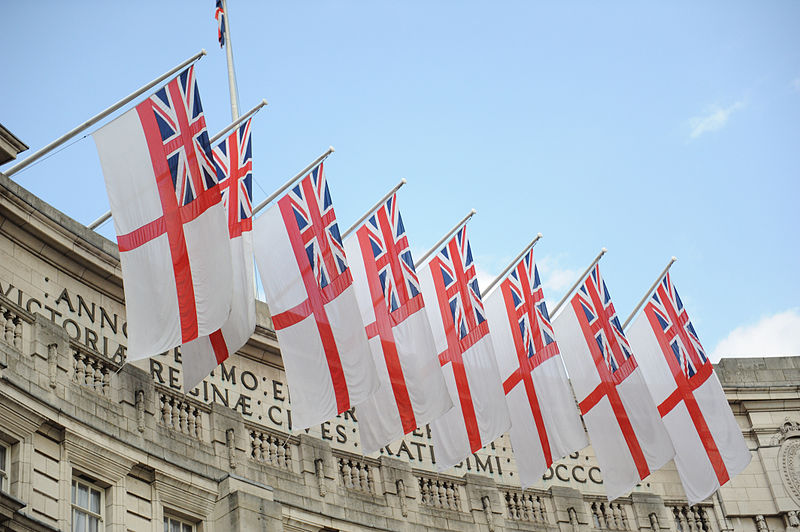
Shortly before declaring her candidature for the Labour leadership, Rebecca Long-Bailey called for a revival of what she termed “progressive patriotism” to restore the party’s fortunes in working class communities.
Conservative critics predictably read her pledge as a feeble apology for the current Labour leadership’s seemingly deep-seated antipathy to everything British. Less hostile commentators voiced scepticism about the historic example she gave to explain what it meant: namely, the willingness of Lancashire mill workers to sacrifice their material interests to support Abraham Lincoln’s economic boycott of southern slave states during the American civil war. Their question: did the mill workers’ principled stance really typify labour attitudes?
There’s been some discussion, too, about the ease with which Long-Bailey aligned progressive patriotism to internationalism, a connection implied by the mill workers’ action. Her invocation of the rhetoric of class solidarity points to an ambition to strengthen global co-operation, but is more obviously geared to the construction of new domestic cross-class alliances. In Long-Bailey’s hands then, progressive patriotism is a retouching tool, an idea designed to repair the party’s tattered image in its former heartlands, but without upsetting the sensibilities of ‘worldly’ urban voters.
This reassertion of Labour’s patriotic credentials might look like a smart way of tapping into the enthusiasm generated by the prospect of our burgeoning so-called independence from Brussels. But positioning the left in a politics dominated by mavericks preoccupied with symbolic politics – like crowdfunding £500,000 for Big Ben to chime to mark Brexit – is surely a dangerous game.
Patriotism is often painted as the benign sibling of nationalism. For its advocates, it spells friendly love of country not nasty aggrandisement. Patriots want to fix and maintain their own backyards while cultivating peaceful, productive relations with those on the outside. It’s nationalists that are the dangerous ones: always itching to develop and expand the neighbourhood. In nationalism, the patriotic ‘mi casa es su casa‘ gives way to the threat of eviction: ‘your house is mine’.
This is the position Ruth Davidson, then-leader of the Scottish Conservatives, took back in 2017, using such patriotic notions to mount an attack on her competition, the Scottish Nationalist Party. In doing, Davidson found unlikely sources of support in the work of anarchist-friendly writers George Orwell and Albert Camus.
From Orwell, she borrowed the distinction between patriotism and nationalism. For Orwell, patriotism meant devotion to a place “which one believes to be the best in the world but has no wish to enforce on other people”. Nationalism was “the habit of identifying oneself with a single nation or other unit, placing it beyond good and evil and recognising no other duty than that of advancing its interests”. She turned to Camus for a neat catchphrase to sum up her anti-nationalist, patriotic stance: “I love my country too much to be a nationalist”.
But this doesn’t give us a full picture. Although acknowledging that Orwell’s view was shaped by wartime anti-fascism, Davidson skirted over his pre-war involvement as an internationalist in the Spanish revolution. She also entirely ignored Camus’ essay Letter to a German friend, which outlined his considered attitude to nationalist politics. In doing so, she wilfully distorted the anarchist analysis of patriotism and nationalism.
For years, anarchists have argued that the distinction between patriotism and nationalism is bogus. For them, ‘love of country’ evokes an attachment to place or landscape that is wholly misleading, camouflaging a set of duties, interpreted by the government, that patriots are presumed to owe to the nation. That said, there is no reason to suppose that nationalism will necessarily promote authoritarianism. Historically, it has also served as an instrument of anti-colonial and anti-imperialist emancipation, with Algeria being a notable post-war example.
By that same token, it is similarly naïve to think that government will always call on patriots to pursue just or productive goals. Leo Tolstoy, the novelist turned anarchist, antimilitarist and pacifist echoed the sentiment, characterising the relationship between patriotism and nationalism as symbiotic. In 1894, he argued that patriotism was structured by the logic of the feasibility and justness of war: a “hypnotic” doctrine that painted the sacrifice of tranquillity, property and life in defence of “one’s own people” as the highest public virtue.
Indeed, Long-Bailey’s conscious prefixing of the term suggests she has some qualms about using it unalloyed. However, the meaning of “progressive” in this specific context remains a mystery. Is the idea to brainwash people to do ‘good’ rather than ‘bad’? “America First” is a worrying patriotic call. And the language of treason and betrayal that naturally flows from it is not restricted to the racist, nationalist politics that the Trump presidency readily embraces. Patriotism means meeting obligations to defend the public good and demonising anyone who refuses to do so as anti-patriotic. Whatever it demands – wearing poppies, celebrating royal weddings, conscription – the duty prevails.
In his Letter to a German friend Camus wrote: “I should like to be able to love my country and still love justice”. Disentangling attachment to place from its governance, he prioritised a commitment to justice over place. He later put the same argument to pro-independence fighters in his birth country of Algeria. When they put bombs on public transport, threatening the life of his mother, he responded by saying, “If that is justice, I prefer my mother”.
Those British patriots who are now so eager to celebrate the country’s release from the shackles of the European Union promote self-government within it and use this to reject the claims of nationalist parties who want the same thing outside it. The relevant difference between these two groups is not in what they call themselves – patriotic or nationalist- but the forms of self-government they propose.
Ruth Kinna works at Loughborough University. She is the author of the pamphlets ‘Great Anarchists’ published by Dog Section Press and The Government of No One (Pelican Books, 2019).